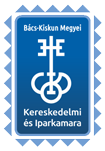Gyerekkori álmaink jövőbeli munkahelyünkről gyakran nem válnak valóra – ám ez nem kell, hogy törvényszerű legyen. A Magyar Kereskedelmi és Iparkamara legújabb kampányfilmjében arra hívja fel a szülők figyelmét, hogy mennyire fontos, hogy támogassák gyermekeiket abban, hogy valóban azt csinálják, amit szeretnének!
Rengeteg tinédzser válaszol nehézkesen, sőt, még a fiatal felnőttek közül is többen hezitálnak, ha valaki megkérdezi tőlük, milyen pályán szeretnének elhelyezkedni. A gyermekek azonban a lehető legnagyobb bizonyossággal közlik elképzelt szakmájukkal kapcsolatos vágyaikat, hiszen tudják, mi érdekli őket. Ha szeretnek segíteni a sütésnél, odáig vannak az autókért, vagy gyakran sertepertélnek a kertben, nem is kérdés számukra, mivel indíthatják pályafutásukat. Mikor látjuk, mit csinálnak a legszívesebben, az pontos indikátora annak, mely szakmákban lesz a jövőben helyzeti előnyük.
 Bács-Kiskun Chamber of Commerce and Industry
The key to success is – the Chamber
Bács-Kiskun Chamber of Commerce and Industry
The key to success is – the Chamber
 Bács-Kiskun Chamber of Commerce and Industry
The key to success is – the Chamber
Bács-Kiskun Chamber of Commerce and Industry
The key to success is – the Chamber